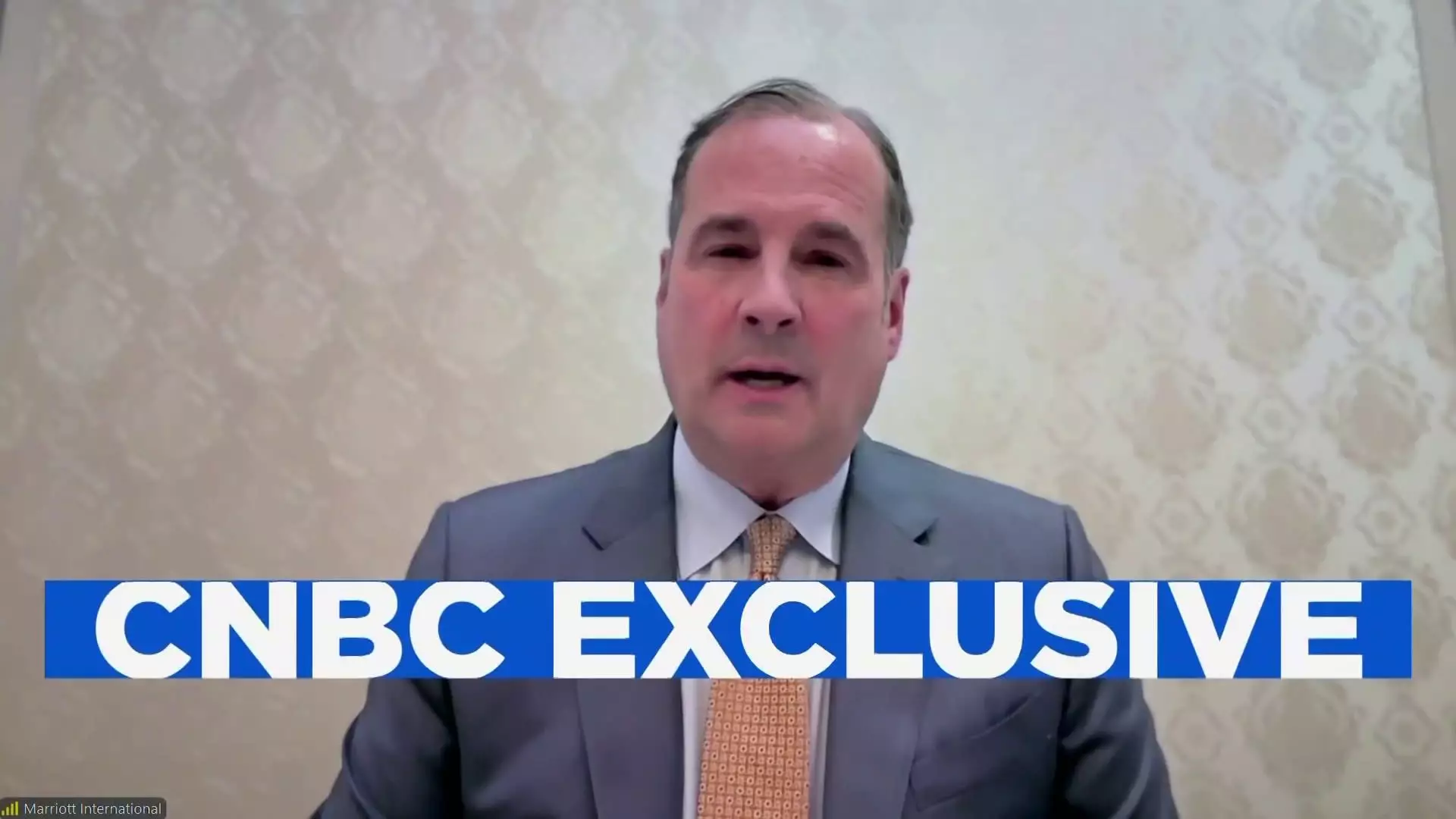In a recent conversation with CNBC, Marriott International’s CEO, Anthony Capuano, provided an optimistic outlook for the company despite the backdrop of layoffs and a sluggish tourism market in China. The hospitality giant, which has faced significant challenges, particularly in its second-largest market, has managed to navigate these obstacles with notable growth metrics. Capuano confidently announced that Marriott is performing exceptionally well across all markets, underscoring the company’s resilience and adaptability in a shifting global landscape.
The company’s third-quarter financial results indicate an overall increase in revenue per available room (RevPar) by 3%. However, the 8% decline in RevPar in China highlights the struggles faced in that specific region. Capuano remains bullish on the Chinese market, predicting a turnaround aided by a record volume of hotel signings anticipated for early 2024. This boost in activity suggests that both public and private real estate sectors are still confident in China’s long-term tourism potential.
Capuano’s conviction is strengthened by the increasing domestic travel within China and a remarkable rebound in international inbound tourism, which, for the first time since the pandemic, surpassed pre-pandemic figures. Prior to the pandemic, cross-border travel made up about 18-19% of Marriott’s total room nights; by the end of the third quarter of 2024, this figure exceeded 20%. With predictions for further restoration of airline capacity, the future looks promising for international travel in Greater China, which could lead to significant growth opportunities for Marriott.
Marriott’s net room growth of 6% year-on-year and a room rate increase of 2.5% have been largely driven by the robust resurgence of group travel, which Capuano has identified as a crucial component of the company’s strategy moving forward. The increased engagement through the Bonvoy loyalty program, with a record 219 million members, solidifies Marriott’s standing in a competitive market. The growth in membership can be attributed to strategic partnerships with brands like Uber and Starbucks as well as the dedicated efforts of hotel staff who foster customer loyalty.
Despite the positive financial indicators, Marriott has taken the challenging step of laying off over 800 corporate employees, a move confirmed during the company’s earnings call. Capuano described this decision as part of a necessary reorganization rather than a typical cost-cutting measure. By transitioning towards a more decentralized decision-making process, the company aims to empower local teams while streamlining operations at its global headquarters in Bethesda, Maryland.
This strategic shift in corporate structure comes in response to the significant growth Marriott has experienced in recent years, expanding its footprint into 60 new countries. By reallocating decisions to regional teams, Marriott seeks to enhance efficiency and agility, allowing for better responses to local market dynamics. Capuano assured stakeholders that these changes will not compromise service levels at the hotel properties since the layoffs predominantly affect the corporate sector rather than the frontline staff.
In addition to adjustments in corporate operations, Capuano noted strong occupancy levels across Asia-Pacific, particularly in Japan, where Marriott recently celebrated the opening of its 100th hotel. This milestone is indicative of the brand’s determination to expand and thrive in diverse markets, reinforcing its commitment to growth amidst adversity.
Marriott’s trajectory reflects an ongoing effort to balance short-term challenges with long-term aspirations. While the company faces external pressures, its strategic planning and market confidence indicate a path forward ripe with opportunity. As the hospitality sector continues to rebound from pandemic disruptions, Marriott’s proactive approach may very well encapsulate the future of successful global operations within the travel industry.
Marriott International is currently at a pivotal crossroads, leveraging its operational agility and market insights to drive growth even in the face of significant changes. The company’s potential for recovery and expansion appears promising, reinforcing its role as a prominent player in the global hospitality arena.


Leave a Reply